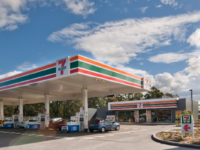
Peters Ice Cream is to be prosecuted in the Federal Court for entering into an exclusive contract with PFD Foods which allegedly impacted competition in the supply of wrapped ice cream and frozen confectionery products in petrol stations and convenience stores.
The prosecution was announced today by the ACCC which believes it has evidence to prove Peters (the trading name of Australasian Food Group) broke the law by including a condition in its contract with PFD that it could not distribute any competing ice-cream products in certain locations around Australia.
The action, known as exclusive dealing, occurs when one entity trading with another imposes some restrictions on the other’s freedom to choose with whom, in what, or where they deal, according to the ACCC. Exclusive dealing is against the law when it has the purpose or effect or likely effect of substantially lessening competition.
Peters produces single-serve products under the brands Drumstick, Maxibon, Connoisseur, Frosty Fruits, BillaBong, and others.
In a statement, the ACCC said it would argue in court that Peters engaged in exclusive dealing between November 2014 and December 2019 when a contract with PFD to distribute its convenience products nationwide was in force. During that period, PFD made multiple requests to Peters to distribute competing products but Peters refused to concede.
“The ACCC alleges that, for new entrants, PFD was the only distributor capable of distributing single-wrapped ice cream products to national petrol and convenience retailers on a commercially viable basis,” the commission said in a statement. “Unlike PFD, other potential distributors did not have a national frozen food route to these retailers.”
The ACCC said it would also argue that the high costs for new entrants of establishing their own distribution network was not commercially viable.
“We allege that, as a result of the agreement and Peters’ conduct, other ice-cream suppliers had no commercially viable way of distributing their single serve ice creams to national petrol and convenience retailers,”said ACCC chair Rod Sims.
“Our case is that the distribution agreement and Peters’ conduct effectively raised barriers of entry, which hindered or prevented potential new entry into the market to supply single serve ice cream products to petrol and convenience retailers.
“We also allege that a substantial purpose of Peters engaging in the conduct was to protect its market position from competitors, as one of only two major suppliers of single-wrapped ice creams, who together held a combined market share of over 95 per cent during the relevant time,” Sims said.
“We allege that this conduct reduced competition, and may have deprived ice cream lovers of a variety of choice or the benefit of lower prices when purchasing an ice cream at one of these stores.”
Subsequent to last December, Peters has entered into a new agreement with PFD which does not include restrictions on PFD distributing competing products, but the ACCC is seeking declarations, pecuniary penalties, a compliance program order and costs for the term of the allegedly illegal contract.
















